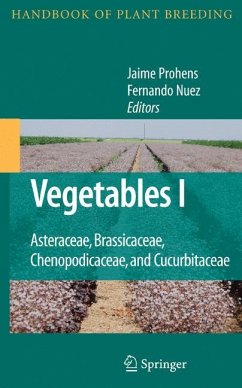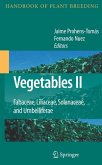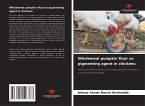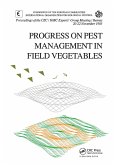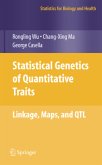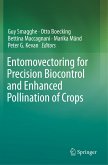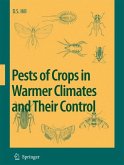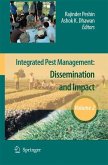The first volume of the Handbook of Plant Breeding book series, Vegetables I is devoted to vegetable crops breeding. It contains a comprehensive review of the diversity, breeding techniques, and use of the most advanced molecular techniques in the genetic improvement of these crops.
The production and consumption of vegetables has expanded dramatically in the last years, with a global growth in the production of more than 50% in the last decade, a rate of increase that is much higher than for other plant commodities. Vegetables constitute an important part of a varied and healthy diet and provide significant amounts of vitamins, antioxidants and other substances that prevent diseases and contribute to an improvement in the quality of life. In consequence, it is expected that in the coming years, vegetable crops production will continue its expansion. Improved varieties have had a main role in the increases in yield and quality of vegetable crops. In this respect, the vegetables seed market is very dynamic and competitive, and predominant varieties are quickly replaced by new varieties. Therefore, updated information on the state of the art of the genetic improvement of specific crops is of interest to vegetable crops breeders, researchers and scholars. During the last years an immense quantity of new knowledge on the genetic diversity of vegetables and the utilization of genetic resources, breeding methods and techniques, and on the development and utilization of modern biotechnologies in vegetables crop breeding has accumulated, and there is a need of a major reference work that synthesizes this information. This is our objective.
The production and consumption of vegetables has expanded dramatically in the last years, with a global growth in the production of more than 50% in the last decade, a rate of increase that is much higher than for other plant commodities. Vegetables constitute an important part of a varied and healthy diet and provide significant amounts of vitamins, antioxidants and other substances that prevent diseases and contribute to an improvement in the quality of life. In consequence, it is expected that in the coming years, vegetable crops production will continue its expansion. Improved varieties have had a main role in the increases in yield and quality of vegetable crops. In this respect, the vegetables seed market is very dynamic and competitive, and predominant varieties are quickly replaced by new varieties. Therefore, updated information on the state of the art of the genetic improvement of specific crops is of interest to vegetable crops breeders, researchers and scholars. During the last years an immense quantity of new knowledge on the genetic diversity of vegetables and the utilization of genetic resources, breeding methods and techniques, and on the development and utilization of modern biotechnologies in vegetables crop breeding has accumulated, and there is a need of a major reference work that synthesizes this information. This is our objective.
From the reviews:
"This book offers a systematic treatment of important information for breeders and others who work with vegetable crops. Prohens and Nuez ... have compiled a collection of high-quality review articles for each crop by well-respected authorities. ... Chapters include extensive, authoritative references. ... it is geared toward readers interested in specific crop applications. ... It is a timely volume for this rapidly moving field as 21st century genetics and genomic applications are applied to plant breeding. Summing Up: Recommended. Upper-division undergraduates through professionals." (R. Grumet, CHOICE, Vol. 45 (10), June, 2008)
"This book offers a systematic treatment of important information for breeders and others who work with vegetable crops. Prohens and Nuez ... have compiled a collection of high-quality review articles for each crop by well-respected authorities. ... Chapters include extensive, authoritative references. ... it is geared toward readers interested in specific crop applications. ... It is a timely volume for this rapidly moving field as 21st century genetics and genomic applications are applied to plant breeding. Summing Up: Recommended. Upper-division undergraduates through professionals." (R. Grumet, CHOICE, Vol. 45 (10), June, 2008)

